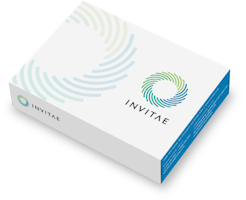
Invitae C9orf72-related Frontotemporal Dementia and Amyotrophic Lateral Sclerosis Repeat Expansion Test
Test code: 444006 •
Test description
The Invitae C9orf72-related Frontotemporal Dementia and Amyotrophic Lateral Sclerosis Repeat Expansion Test analyzes for hexanucleotide (GGGGCC) repeat expansions within an intronic region of the C9orf72 gene. Pathogenic repeat expansions in C9orf72 are the most common hereditary cause of frontotemporal dementia (FTD), a neurodegenerative condition characterized by progressive behavioral and cognitive impairment, and amyotrophic lateral sclerosis (ALS), a progressive neurodegenerative condition involving loss of upper and lower motor neurons. Repeat expansion analysis of the C9orf72 gene may help confirm a clinical diagnosis, predict disease prognosis and progression, facilitate early detection of symptoms, inform family planning and genetic counseling, or promote enrollment in clinical trials.
Assay Information
Method
This test is designed to detect and categorize hexanucleotide (GGGGCC) repeat units in intron 1 of the C9orf72 gene. Analysis of other variant types or other regions is not performed for this gene. Specific limitations in the analysis of this gene is included in the list of gene-specific limitations.
The number of hexanucleotide repeat units in intron 1 of the C9orf72 gene is assessed by repeat-primed PCR (RP-PCR) with fluorescently labeled primers followed by fragment size analysis of the resulting amplicons via capillary electrophoresis (CE). This assay detects and appropriately accounts for the vast majority of indels directly downstream of the repeat region that occur in approximately 3% of the general population and 20-25% of individuals with an expansion in this region (PMID: 27936955). A secondary round of RP-PCR + CE, utilizing a non-overlapping set of primers to amplify the locus from the opposite direction, is used to confirm the initial call in the case of suspected allele sizes of 22 or more repeat units. This test can accurately (+/-1 repeat unit) determine repeat size up to 31 repeat units (Pathogenic full mutation cut-off), but is not designed to determine the exact number of repeat units over 31.
Detected repeat expansions in C9orf72 are interpreted using a modified version of Invitae's Sherloc variant classification framework. Repeat size ranges- Benign (Normal Range): <25 repeat units, Uncertain: 25-30 repeat units, Pathogenic (Full Mutation): >=31 repeat units. Repeat lengths for normal and uncertain alleles are sized and included in the report. The exact size of expansion alleles over 30 repeats (full mutations) are not reported.
Limitations and Disclaimer
Based on validation study results and previous literature, this assay is expected to achieve >95% analytical sensitivity and specificity for hexanucleotide repeat expansion detection. In rare cases, an individual may harbor sequence variation (insertions/deletions) in the region downstream of the GGGGCC repeat expansion locus. Although this assay detects and appropriately accounts for the vast majority of indels directly downstream of the repeat region, in rare cases we may not be able to PCR amplify both alleles, and a false negative result may be reported in which only a single allele size is called (presumed homozygosity). Due to somatic mosaicism, repeat size identified in DNA isolated from peripheral blood, buccal cells, or saliva may not reflect the repeat size in untested tissues (e.g. brain). In addition, a negative result does not definitively rule out the presence of an expansion in the mosaic state, as the current test is not validated to detect low-level mosaic variants. In very rare cases (such as circulating hematolymphoid neoplasm, bone marrow transplant, recent blood transfusion, or maternal cell contamination), the analyzed DNA may not represent the patient's constitutional genome. This test does not assess for methylation status.
This test is intended to detect germline variants only. It may not be possible to fully resolve certain details about variants, such as mosaicism, phasing, or mapping ambiguity. This report reflects the analysis of an extracted genomic DNA sample. In very rare cases (such as circulating hematolymphoid neoplasm, bone marrow transplant, recent blood transfusion, or maternal cell contamination), the analyzed DNA may not represent the patient's constitutional genome.
Ordering information
Turnaround time:
10–21 calendar days (14 days on average)New York approved:
YesPreferred specimen:
3mL whole blood in a purple-top EDTA tube (K2EDTA or K3EDTA)Alternate specimens:
Saliva, buccal swab, and gDNA are also accepted.Learn more about specimen requirementsRequest a specimen collection kitClinical description
To view the complete clinical description of this panel, click here.
You can customize this test by clicking genes to remove them.
Primary panel
Question about billing?
Find answers